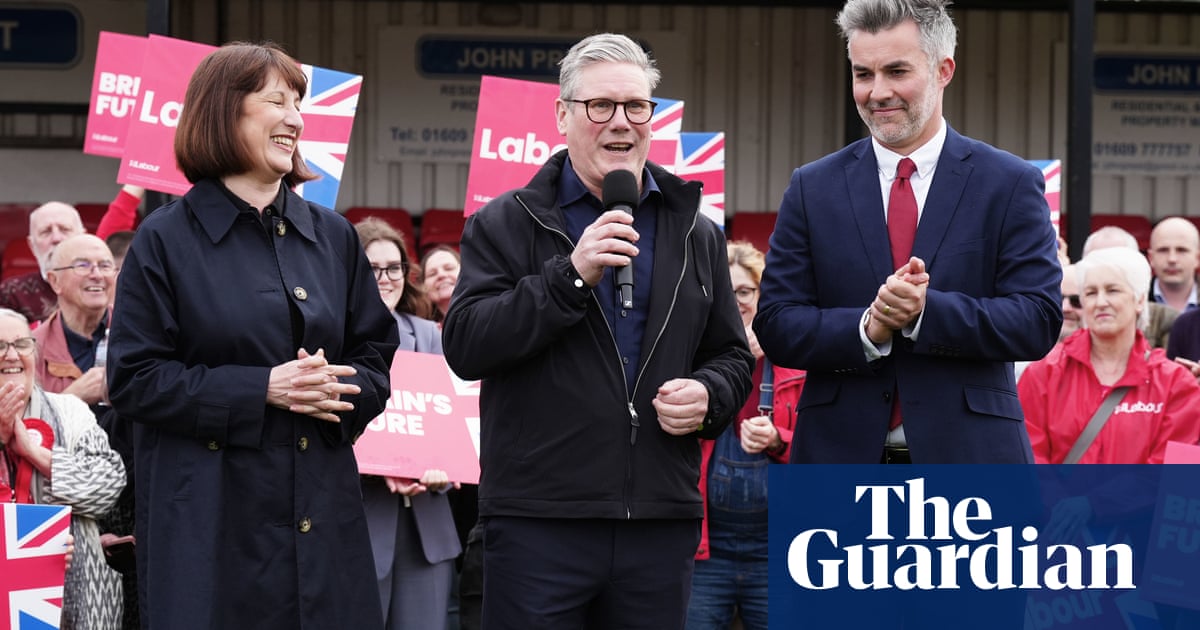
The Conservatives held on to their high-profile Tees Valley mayoralty with a reduced majority for Ben Houchen in the mayoral elections, but Labour won three other contests, in the East Midlands, North East and Rishi Sunak’s own patch of North Yorkshire.
Houchen was re-elected with a 16.5 percentage point swing to Labour. He won 81,930 votes (53.6%) against 63,141 (41.3%) for Labour and 7,679 (5%) for the Liberal Democrats. At the last election he won 73% of the votes.
Houchen bucked the prevailing anti-Tory trend by being elected for a third term in a region that was once a solid Labour heartland. Labour said Houchen had essentially campaigned as an independent and that voters were not giving the national Conservative party their support.
Hours later the shine was somewhat taken off Houchen’s victory when Labour won the inaugural mayoral election in York and North Yorkshire – a region that includes Sunak’s Richmond constituency – with a majority of almost 15,000 over the Conservatives. David Skaith polled 66,761 votes (35.06%), with Keane Duncan (Conservative) on 51,967, the Lib Dems third, Greens fourth and two independents in fifth and sixth.
In the East Midlands, the Labour candidate and former Watford MP Claire Ward saw off competition from the Conservative MP and Nottinghamshire council leader, Ben Bradley, to take the mayoralty by more than 50,000 votes.
Ward said she was “humbled” to have been elected into the new role, and that voters had not only endorsed her but also “a changed Labour party that can now confidently and with conviction say we are ready to lead”.
“You came out and you grasped the opportunity to take the decision-making out of the hands of strangers in Whitehall, and bring them closer to home,” she told voters in her victory speech.
Ward received 181,040 votes, compared with 129,332 for Bradley. The Green party came third with 50,666 votes, just ahead of Reform UK.
A Labour source described the region as “the beating heart of the general election battleground”, suggesting the party’s comfortable win there is one of the biggest signs yet it could be on track for national victory.
The region encompasses a number of bellwether areas, as well as many former “red wall” seats, including Bolsover and Bassetlaw.
Labour also took the North East mayoralty from the independent, former Labour mayor Jamie Driscoll, with Kim McGuinness winning 41% of the vote, compared with the incumbent’s 25%.
The mayoral votes have been some of the most keenly watched of all Thursday’s local election contests. Campaigners had predicted that the result in Tees Valley and the West Midlands, which will be announced on Saturday, would define how UK politics played out for the rest of 2024.
after newsletter promotion
Both Labour and Conservative sources said they were expecting the Conservative incumbent, Andy Street, to keep his West Midlands mayoralty. They also predicted that Labour’s Sadiq Khan in London could be run closer than anyone had been expecting by the Conservative candidate, Susan Hall.
If the Conservatives had lost both Tees Valley and the West Midlands, it could have spurred Tory rebels to move against their leader, but Houchen’s win enables Sunak loyalists to claim the party can still win seats under his leadership.
In his acceptance speech, Houchen made no reference to the Conservatives or to Sunak. “To be re-elected for a third term in my home, in my community, is absolutely the greatest honour,” he said. He thanked voters for buying into his vision for the next four years, adding: “There is a still long way to go.”
The swing to Labour in Tees Valley was significant. While not enough for victory it was more than enough for regional wins at a general election, said the defeated candidate Chris McEwan. “It will take a 12% swing to bring these parliamentary seats back to Labour,” he said. “There is a recognition on the doorstep that the Labour party has changed and it is time for a change after 14 years of Conservative government.”
McEwan said he had been up against someone who was, in effect, an independent. “I have clearly been fighting an incumbent who’s been well resourced and who has sought to act as an independent and distance himself from Rishi Sunak.”
Source: theguardian.com


















